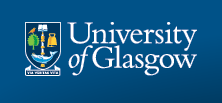Channels
Special Offers & Promotions
Black and Asian groups are at higher risk of COVID-19 infection
Black and south Asian ethnic groups in England appear to be at higher risk of COVID-19, as well as hospitalisation with the disease.
New UK Biobank research, led by the University of Glasgow and published in BMC Medicine, has found that black and south Asian ethnic groups have a higher risk of testing positive with SARS-CoV-2, the virus which causes COVID-19. These groups were also at a higher risk of testing positive while attending hospital, suggesting they were also at greater risk of severe disease from the virus.
These risks remained largely unchanged even when accounting for pre-existing health conditions, health-related behaviours (such as smoking) and the likelihood of working for the health service. However, socioeconomic differences seemed to partly but not wholly explain ethnic differences in COVID-19.
Using UK Biobank data, which has now been updated to include COVID-19 information, the researchers found that black people in England were at highest risk of having laboratory confirmed infection, more than three times more likely than white people. South Asian groups also had a higher risk of testing positive, with Pakistani groups having the highest risk among them.
Age, male sex and pre-existing medical conditions have already been established as predictors of adverse COVID-19 outcomes, however the role of social factors and ethnicity is less well understood so far.
Based on these new findings, researchers now suggest that more work urgently needs done to better understand and address these elevated risks.
Dr Vittal Katikireddi, senior author of the study from the MRC/CSO Social and Public Health Sciences Unit, University of Glasgow, said: “It is becoming increasingly clear that some minority ethnic groups have a higher risk of confirmed SARS-CoV-2 infection, which is only partly accounted for by differences in socio-economic conditions and underlying health conditions.
“Our findings suggest that black and south Asian people experience higher risks of needing to attend hospital for COVID-19. We must now urgently try and understand what is causing these differences in risk, so that we can address them and improve outcomes for patients.”
Socioeconomic deprivation and having no qualifications were also consistently associated with a higher risk of confirmed infection.
The UK Biobank study has linked data between its study participants and SARS-CoV-2 test results held by Public Health England. Among 392,116 Biobank participants in England, 2,658 had been tested for SARS-CoV-2 and 948 tested positive (726 in hospital) between 16 March and 3 May 2020. Since detailed health information was collected on UK Biobank participants before the pandemic, this allowed the researchers to account for differences (such as smoking and obesity) between ethnic and socioeconomic groups much better than many previous studies.
The study, ‘Ethnic and socioeconomic differences in SARS-CoV-2 infection’ is published in BMC Medicine. The work uses UK Biobank data and was funded by the Medical Research Council (MRC) and the Scottish Government Chief Scientist Office.
Media Partners



